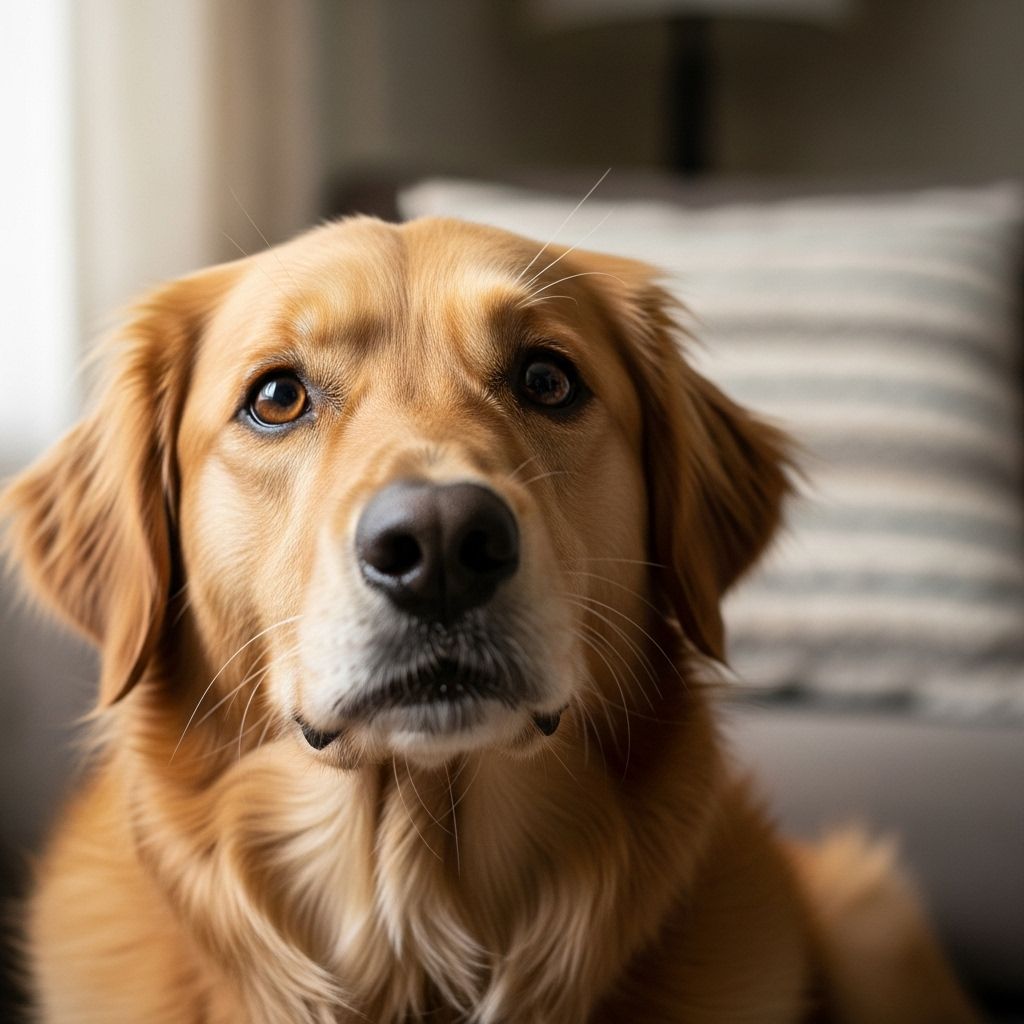Do Dogs Get Hiccups? Causes & How to Help
Soothing techniques can ease canine diaphragm spasms and restore your pet’s comfort.

Do Dogs Get Hiccups?
Dogs, like humans, can indeed experience hiccups. These involuntary contractions of the diaphragm can be quite common, especially in puppies, but they can occur in dogs of all ages. Hiccups are generally not a cause for concern and tend to resolve on their own within a few minutes.
## What Causes Hiccups in Dogs?
Hiccups in dogs are often linked to certain behaviors or conditions. Here are some of the most common reasons your dog might be hiccuping:
- Eating or Drinking Too Quickly: Dogs that consume food or water hastily tend to swallow a lot of air, which can irritate the stomach and cause hiccups. This is especially common in puppies who are still developing their eating habits.
- Stress and Excitement: Stressful situations, over-excitement, or changes in environment can affect a dog’s breathing pattern, leading to hiccups. This includes playtime excitement or meeting new people.
- Stomach Irritation: Consuming spicy foods, high-grain foods, or cold water can irritate the esophagus and cause hiccups. Similarly, dietary changes or intolerance to certain foods can lead to stomach upset and hiccups.
- Environmental Irritants: Exposure to air pollutants like smoke or strong perfumes can irritate the respiratory system and trigger hiccups.
## How to Help a Dog with Hiccups
In most cases, hiccups in dogs are temporary and will resolve on their own. However, here are a few remedies you can try to help soothe your pet:
- Massage: Gently massaging your dog’s chest area can sometimes help relax the diaphragm and stop hiccups.
- Offer Water: Encourage your dog to drink water slowly to help calm the diaphragm and reduce swallowing air.
- Provide a Calm Environment: Stress can exacerbate hiccups, so ensuring your dog is in a calm, stress-free environment can help alleviate them.
- Slow-Feeder Bowls: Using slow-feeder bowls can help prevent your dog from eating too quickly, reducing the likelihood of swallowing air.
## When to Seek Professional Advice
While hiccups are generally harmless, there are instances when you should consult a veterinarian:
- Persistent Hiccups: If your dog experiences hiccups that last for an extended period, it might be a sign of an underlying health issue.
- Additional Symptoms: If hiccups are accompanied by vomiting, diarrhea, lethargy, or other concerning symptoms, it’s crucial to have your dog checked by a vet.
- Underlying Health Conditions: In rare cases, hiccups can be a symptom of more serious health issues like gastrointestinal problems or respiratory issues.
## FAQs
Frequently Asked Questions (FAQs)
Q: Why do dogs hiccup?
A: Dogs hiccup due to involuntary contractions of the diaphragm, often caused by eating or drinking too fast, stress, or stomach irritation.
Q: Can hiccups be a sign of illness in dogs?
A: Most often, hiccups are not serious. However, if they persist or are accompanied by other symptoms like vomiting or lethargy, it could indicate a health issue.
Q: How long do dog hiccups usually last?
A: Typically, dog hiccups resolve on their own within a few minutes.
## Conclusion
While hiccups in dogs are generally not a cause for concern, understanding their causes and knowing when to seek veterinary advice can help ensure your pet’s health and well-being. By recognizing the signs and employing simple remedies, you can help your dog feel better and prevent future episodes.
References
- https://vhavets.com/blog/why-does-my-dog-have-hiccups/
- https://www.petmd.com/dog/general-health/dog-hiccups
- https://brownvethospital.com/blog/dog-hiccups/
- https://www.servicedogtrainingschool.org/blog/dog-hiccups
- https://www.goodrx.com/pet-health/dog/hiccups
- https://www.akc.org/expert-advice/health/can-dogs-get-hiccups/
- https://thevets.com/blog/dog-hiccups/
- https://bark.co/blogs/health/can-dogs-get-hiccups
- https://www.pawlicy.com/blog/hiccups-in-dogs-and-puppies/
Read full bio of Sneha Tete












